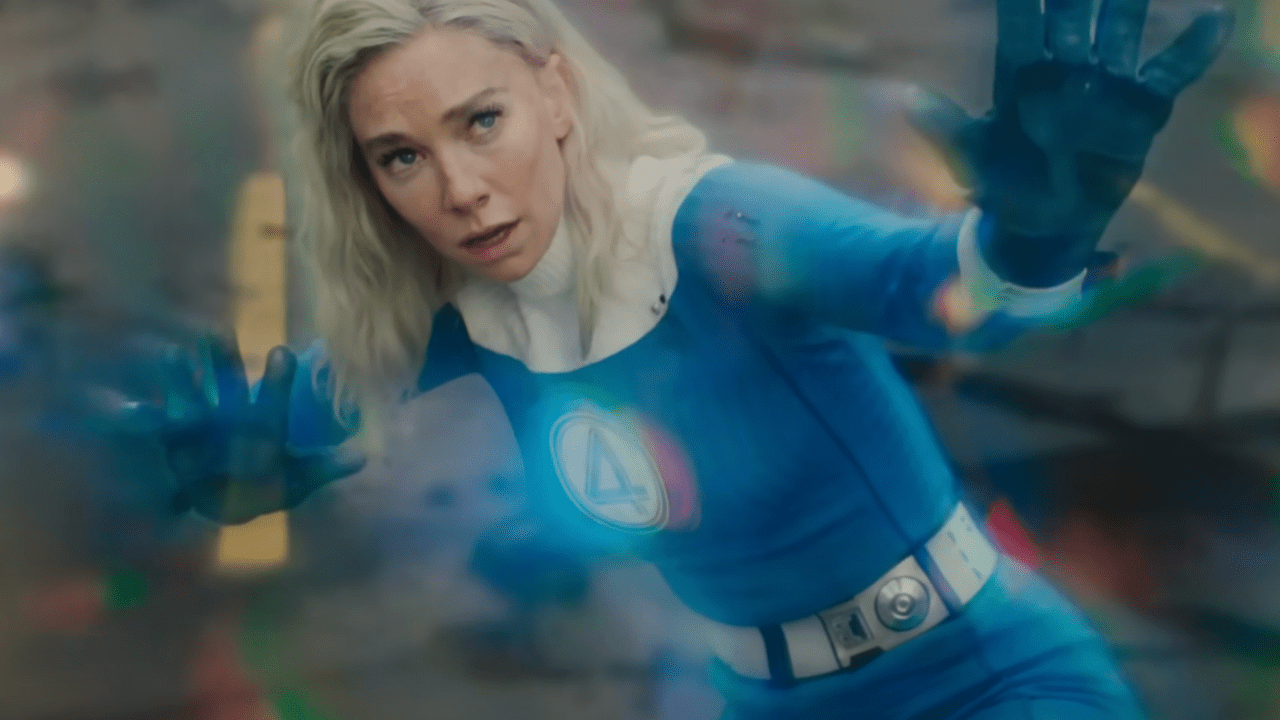
This Fantastic Four: First Steps review contains major spoilers…
During much of my viewing of “The Fantastic Four: First Steps“, it seemed as though my mind deliberately went into a state of hibernation, almost self-induced. I wasn’t simply bored—it was something more profound. It appears that an unconscious defense mechanism within me activated, acting like a shield to safeguard me from the unfolding disaster on screen, which felt like a slow-motion train crash.
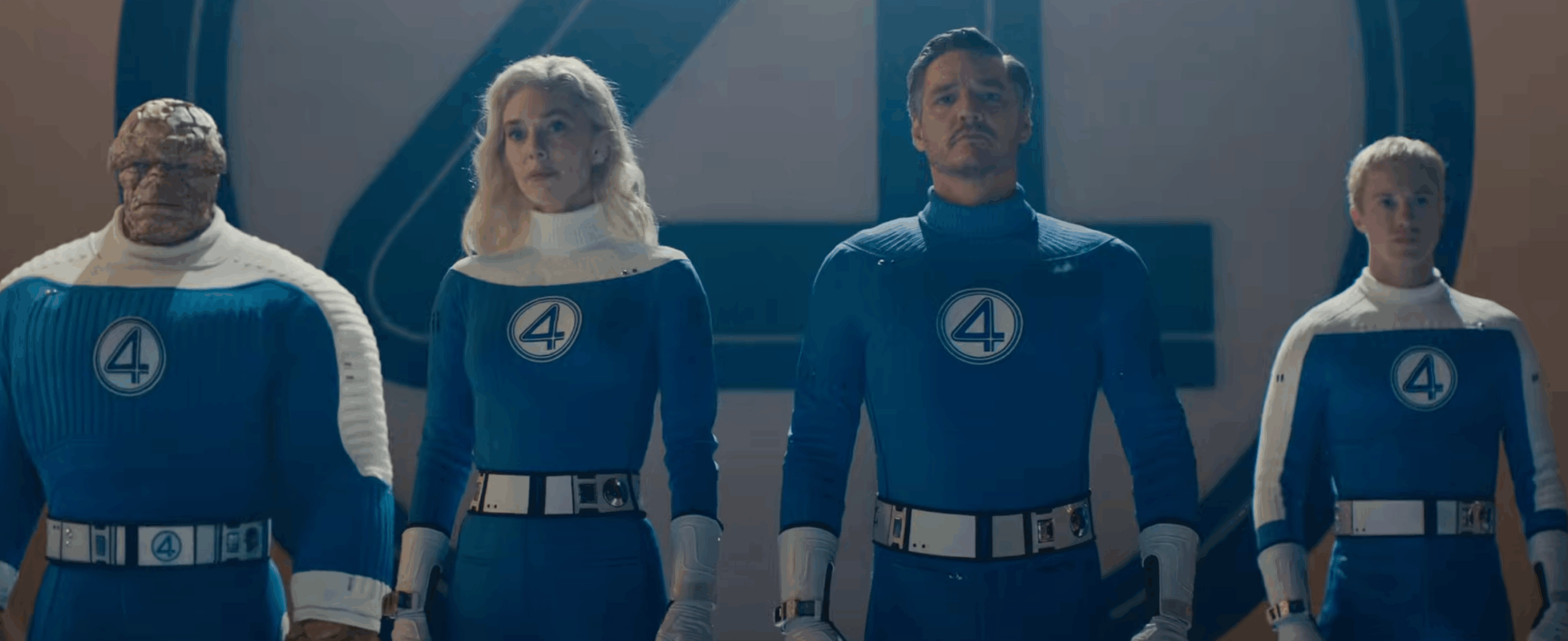
Towards the end, around the last 15 minutes, something incredibly foolish and insensitive jolted me awake, much like a sudden restart. Yes, it wasn’t a dream; I was awakened by the latest Marvel flop.
But we’ll get to that.
The Setting Works… While It Lasts
As a movie connoisseur, I must say that the 1960s sci-fi vibe of Tomorrowland is a breath of fresh air. The blend of retro-futuristic technology, the vibrant color scheme, and the stylish costumes make for a visually captivating experience. It’s a refreshing change from the monotonous, overly saturated style that has been prevalent in recent Marvel productions. For a brief instant, I dared to hope that the Marvel Cinematic Universe had discovered a new stylistic pathway.
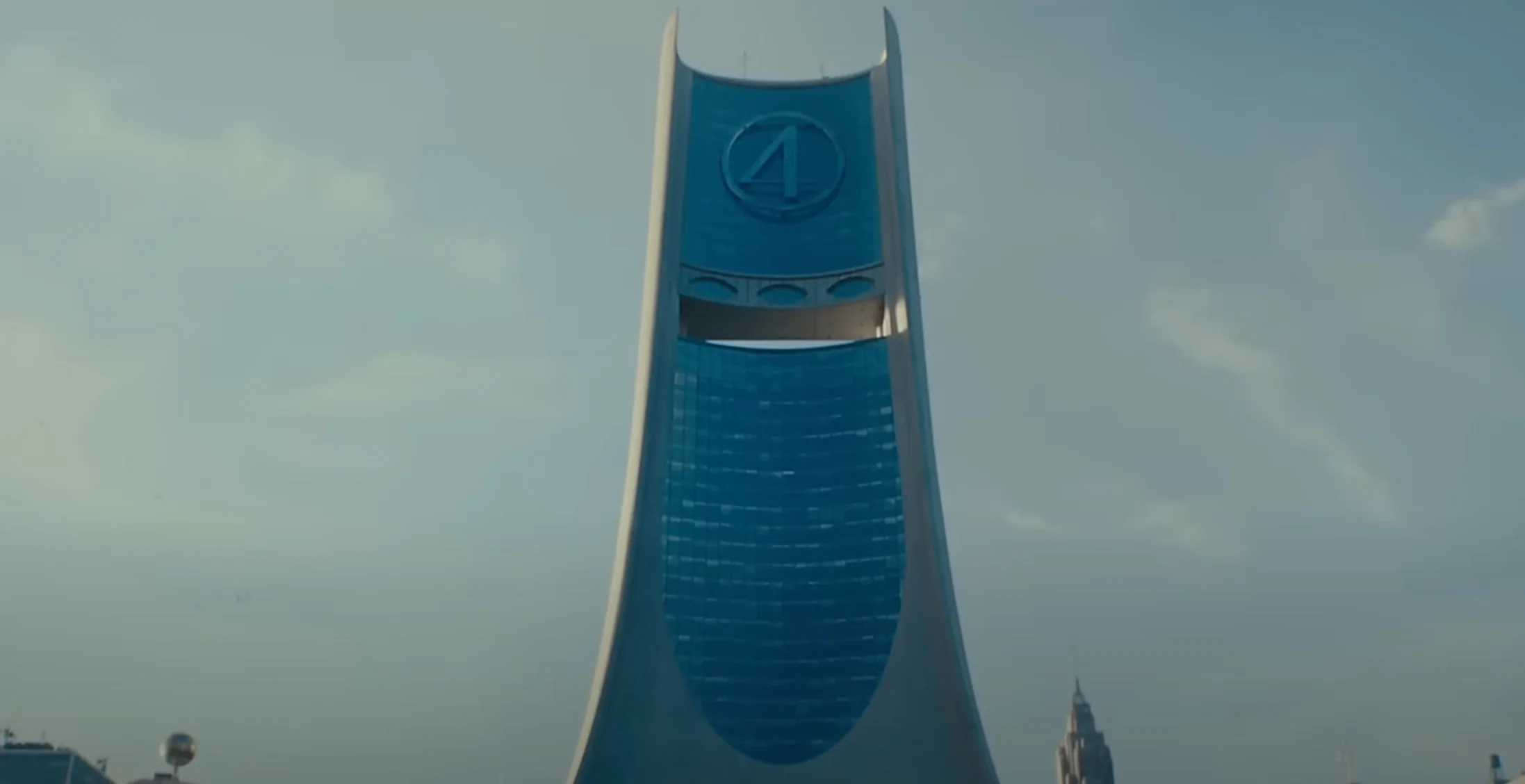
Regrettably, after giving it just a moment’s consideration, it became apparent that this distinctive scenario was merely a novelty trick used once. Given Marvel’s future intentions for the Fantastic Four, it seems they are about to become integral parts of the larger Marvel Cinematic Universe.
Which means goodbye Tomorrowland, hello Multiverse sludge.
Finally, a Movie That Doesn’t Require Homework
In an unusual turn of events: This Marvel film, unlike any since the initial release of Guardians of the Galaxy, doesn’t necessitate extensive familiarity with 30 other productions. It avoids cameos, hints, and complex narrative threads. Instead, it presents a self-contained tale.
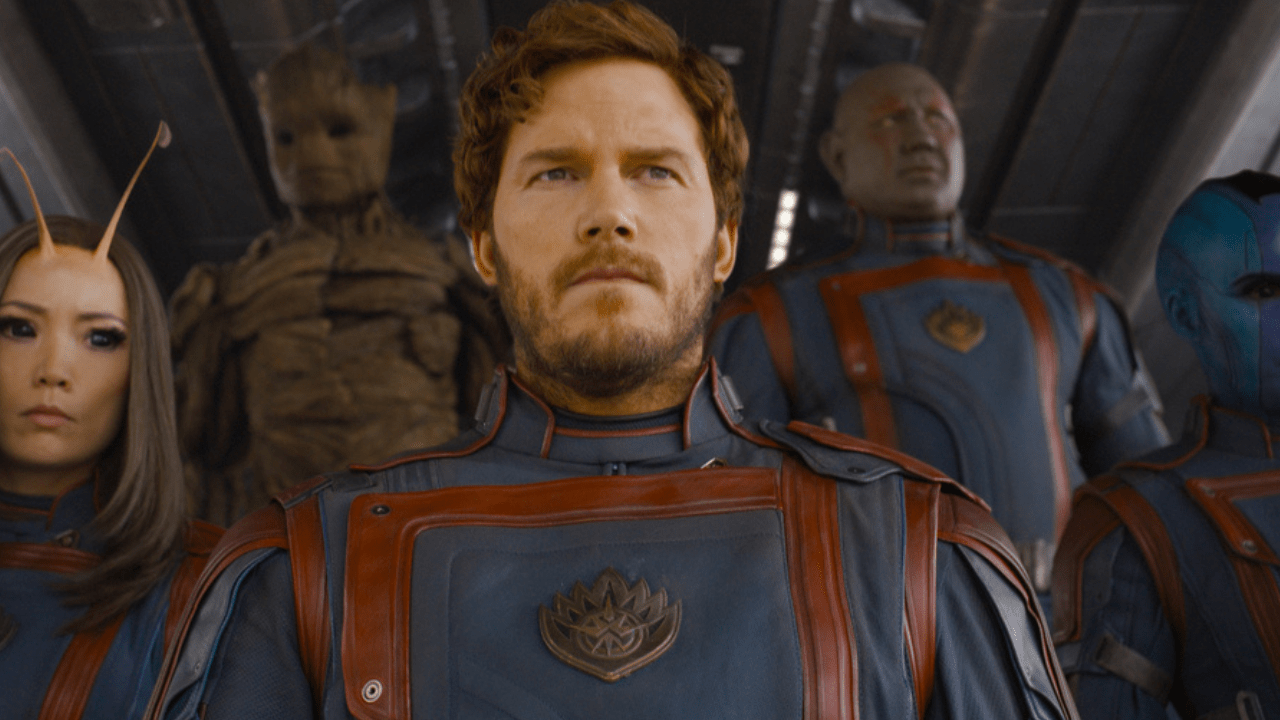
Instead, surprisingly, it avoids undermining each emotional moment with a witty yet sarcastic comment reminiscent of Joss Whedon or James Gunn. There’s an unexpected level of earnestness present in this instance.
But sincerity means nothing if the foundation is cracked. And oh boy is it cracked.
Ben Grimm Is the Heart of the Film… Who Gets Almost No Screen Time
Ebon Moss-Bachrach delivers an outstanding performance as Ben Grimm. He infuses the character with weight, warmth, and understated sadness. Among all cast members, he shines brightest. Yet, it’s disappointing because despite being a key figure in Marvel comics, Ben is given minimal screen time. Regrettably, instead of being at the heart of the story, he’s often relegated to a secondary position—not directly contributing to the main plotline.
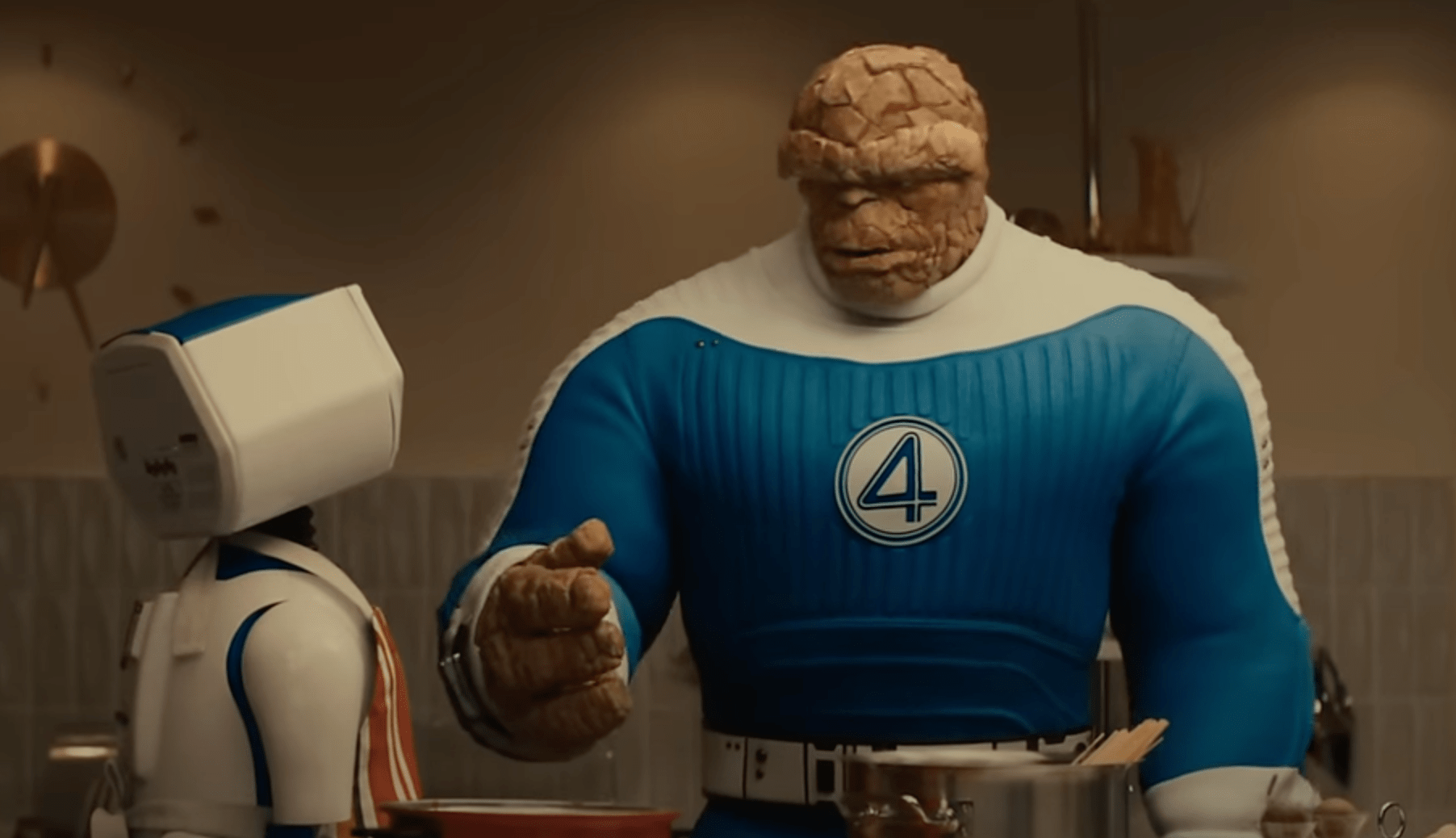
The primary concern is that this film bypasses the initial backstory, starting instead four years into their adventure. It lacks tension, development, personal growth, and emotional depth. Instead of watching them evolve as a team, it’s like they’ve already formed an ideal group—a science-themed Brady Bunch.
A Skipped Origin Story Means Skipped Development
Instead of observing the dramatic confrontations and tender moments between characters like Johnny and Ben, or watching Reed and Sue’s love story unfold, those developments take place off-screen. We only see a change in Johnny from self-centered to altruistic, Ben’s internal turmoil is quickly resolved, and Reed’s emotional burden over mutating his friend is addressed briefly. In simpler terms, important character development happens without our direct involvement or detailed exploration.
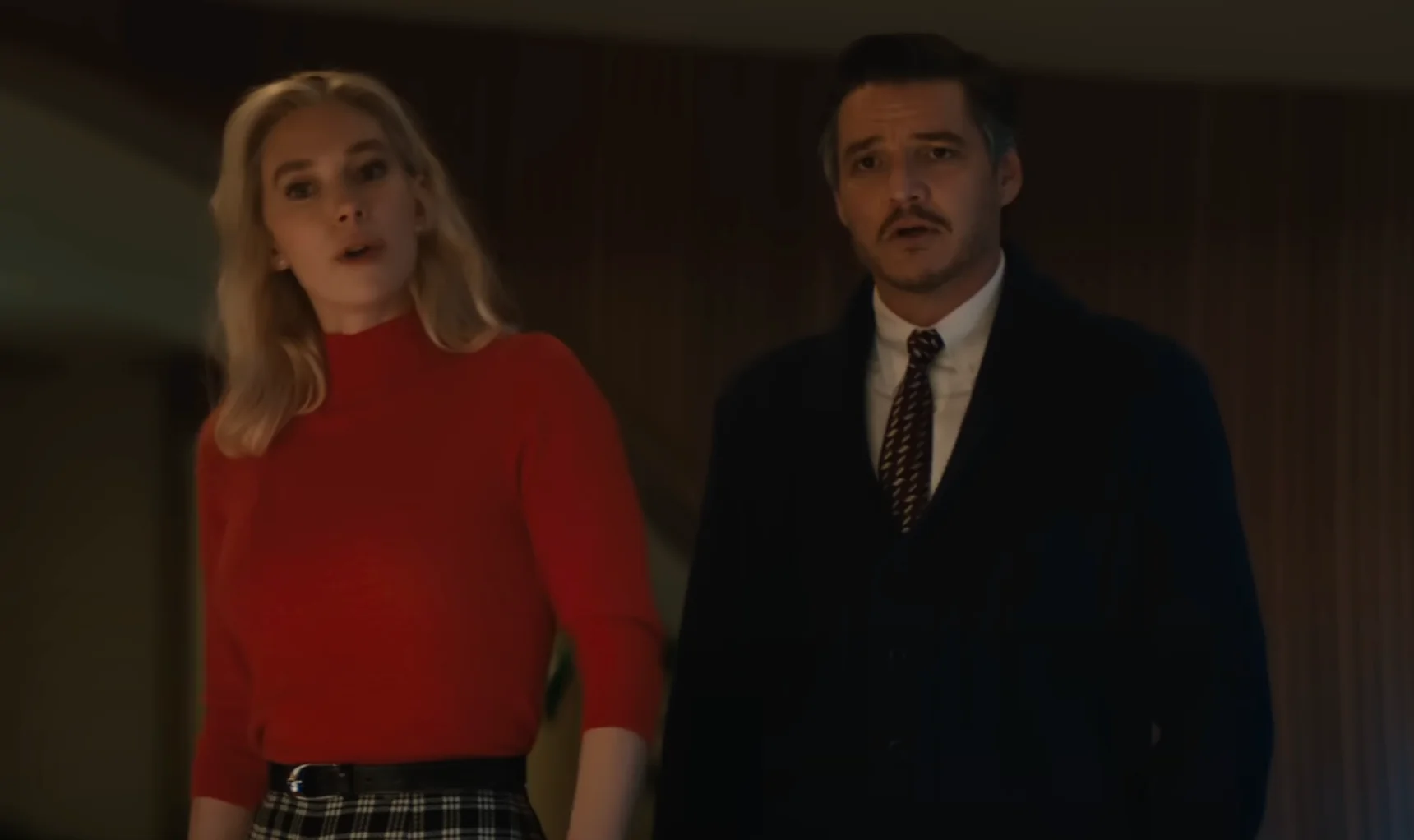
Marvel’s persistent avoidance of delving into origin stories seems to hinder the characters’ development depth. Although First Steps briefly touches upon a condensed backstory, even James Gunn’s Superman had less, it still falls short. The significant character growth appears to have occurred away from the camera’s lens.
The Silver Surfer Problem
In a more conversational style, it can be rephrased as follows: Johnny’s superpowers really shine (literally and figuratively) in this movie, and his action sequences are some of the standouts. However, the awkward romantic storyline between him and Silver Surfette just feels out of place and cringeworthy.
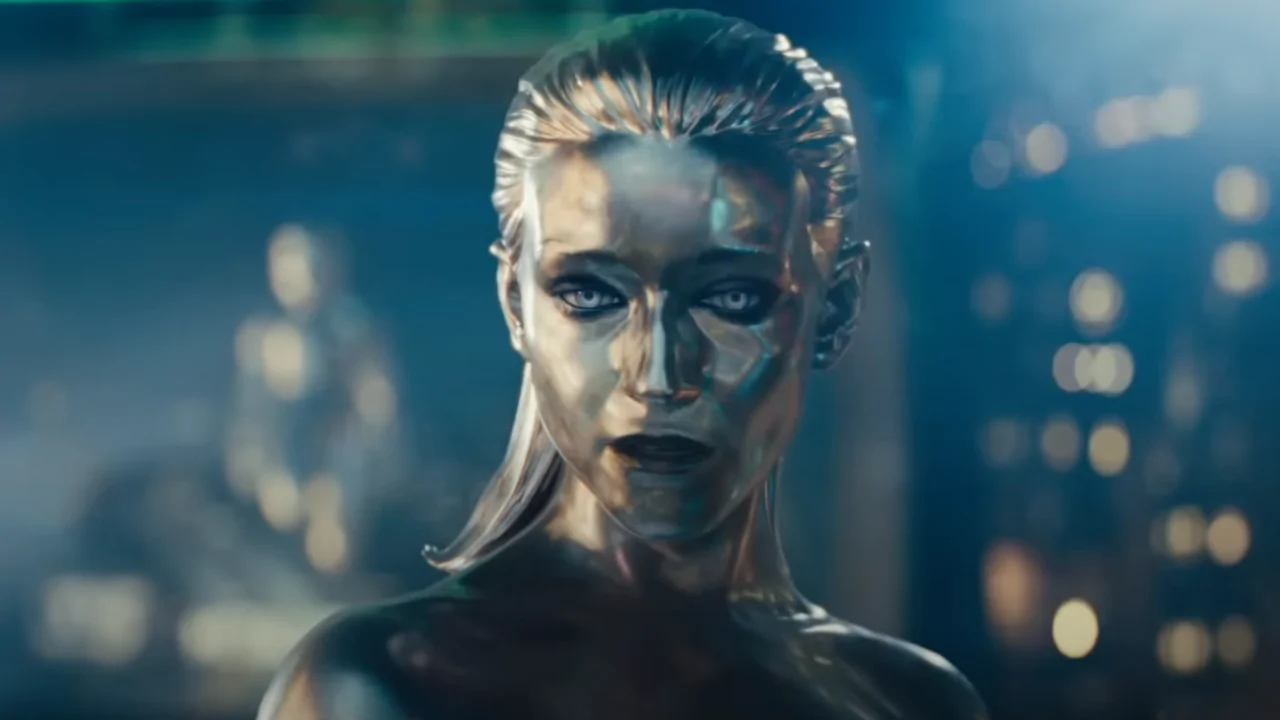
Indeed, you’ve caught my attention with that intriguing “Silver Surfette”. Marvel has taken an unexpected turn by transforming Norrin Radd into Shalla Bal, a resilient single mother who recalls her life prior to Galactus and has been unwillingly guiding him on his destructive path across countless worlds. However, it’s not until Johnny Storm deciphers her entire alien language from just one spoken phrase that she starts to grapple with the gravity of her actions. This moment, in my opinion, could go down as one of the most questionable instances in Marvel Cinematic Universe history.
Then, as it’s the case with Marvel Studios Universe (M-S-E-U), she seizes Johnny’s crucial heroic opportunity and ultimately helps to defeat Galactus herself, similar to Rose Tico in Star Wars: The Last Jedi.
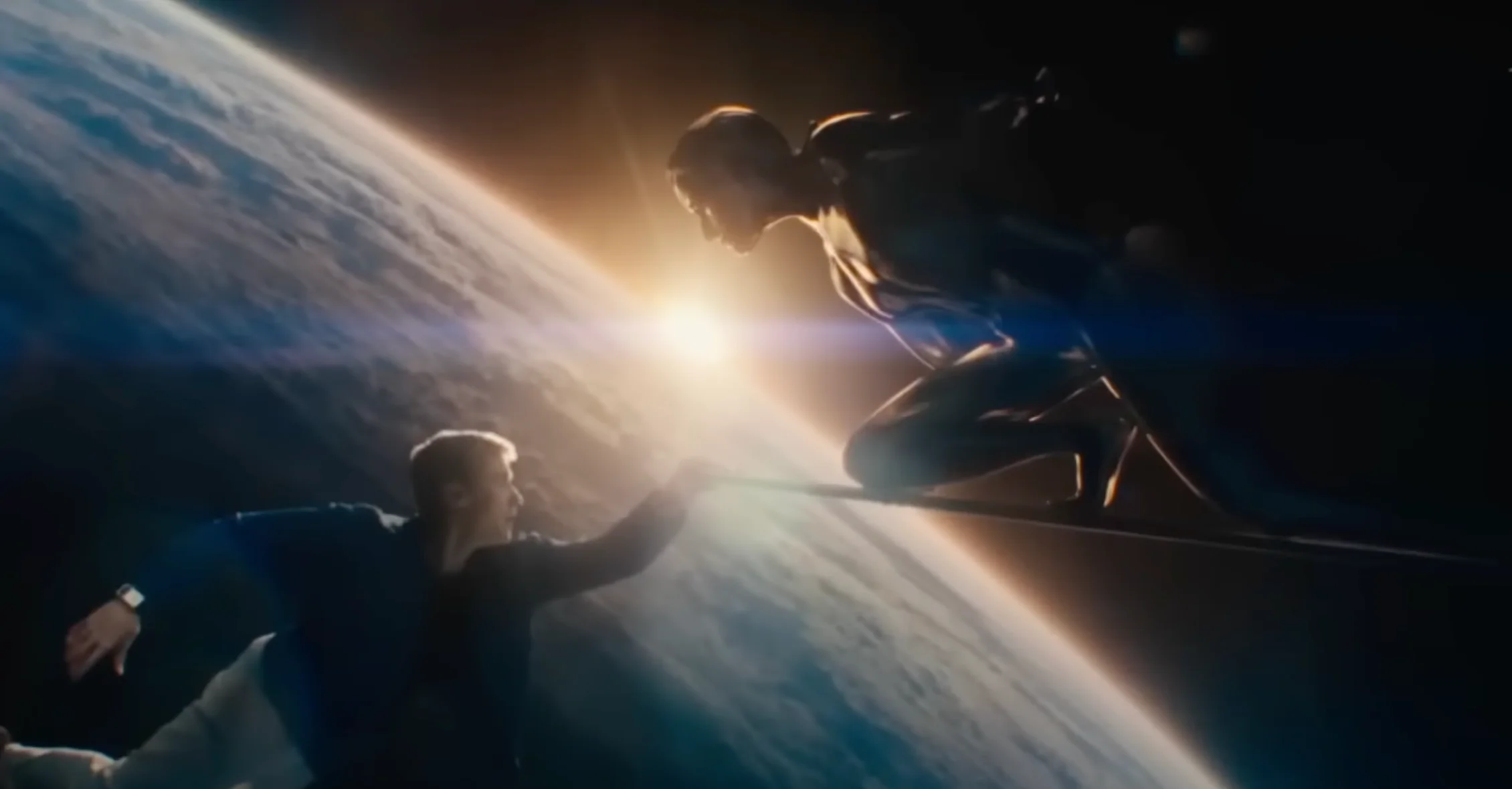
Some supporters argue that Norrin Radd may appear in another realm yet; however, it’s unlikely. In a past scene, Shalla Bal is depicted raising her daughter by herself—a powerful woman nurturing another strong woman, with no male figure present. This isn’t an alternate Silver Surfer. Instead, the Silver Surfer has been reimagined as a maternal eco-warrior.
It’s more Marvel feminist slop. And unfortunately, it doesn’t stop there.
Mary Sue Storm Saves the Day…
In this movie, Sue Storm isn’t portrayed as a character; instead, she serves as a narrative tool that always looks impeccably styled. She lacks any character development or personal growth, and her conflicts are minimal at best. Rather than facing challenges, she resolves global conflicts through speeches. To put it simply, when the public turns against the Fantastic Four, she manages to pacify the angry crowd with a brief motivational speech that sounds more like addressing kindergarten students.
But it gets worse.
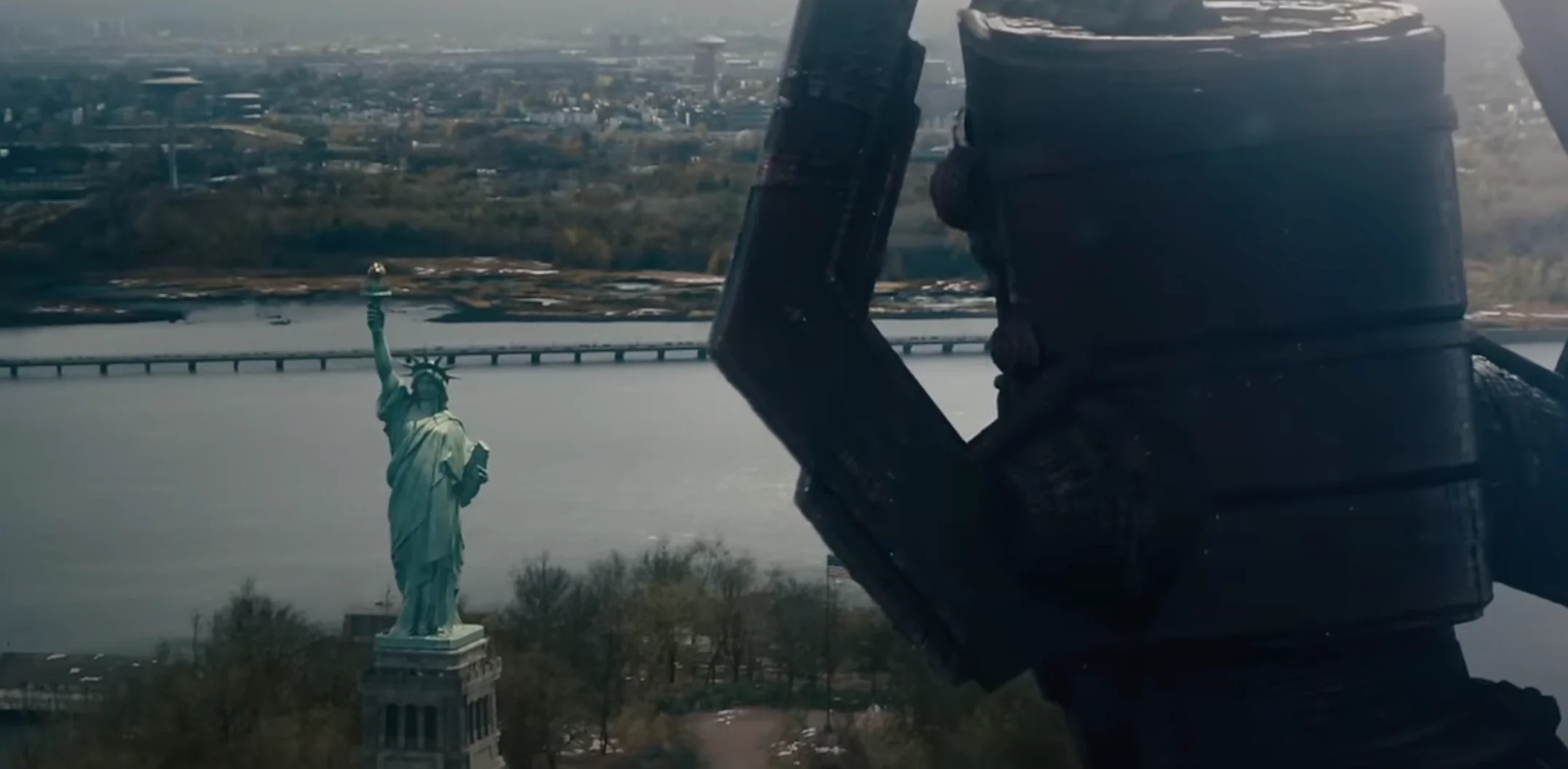
Throughout the movie, Galactus is depicted as a formidable cosmic peril – a raw, natural cataclysm. His appearance is breathtaking. The tension builds around his invincibility.
Later, Sue Storm, harnessing her maternal strength, appears to grapple with Galactus much like a sumo wrestling contest. She forcefully propels him multiple city blocks away, then guides him through a portal for safe passage. Ultimately, she allows the Surfette to deliver the decisive kick that ends the altercation.
That’s when my brain reactivated.
Galactus isn’t someone you can beat in combat. Instead, he’s a colossal entity beyond our understanding. To overcome him, one must resort to persuasion or cunning strategies, rather than brute force.
That’s Reed Richards’ job.
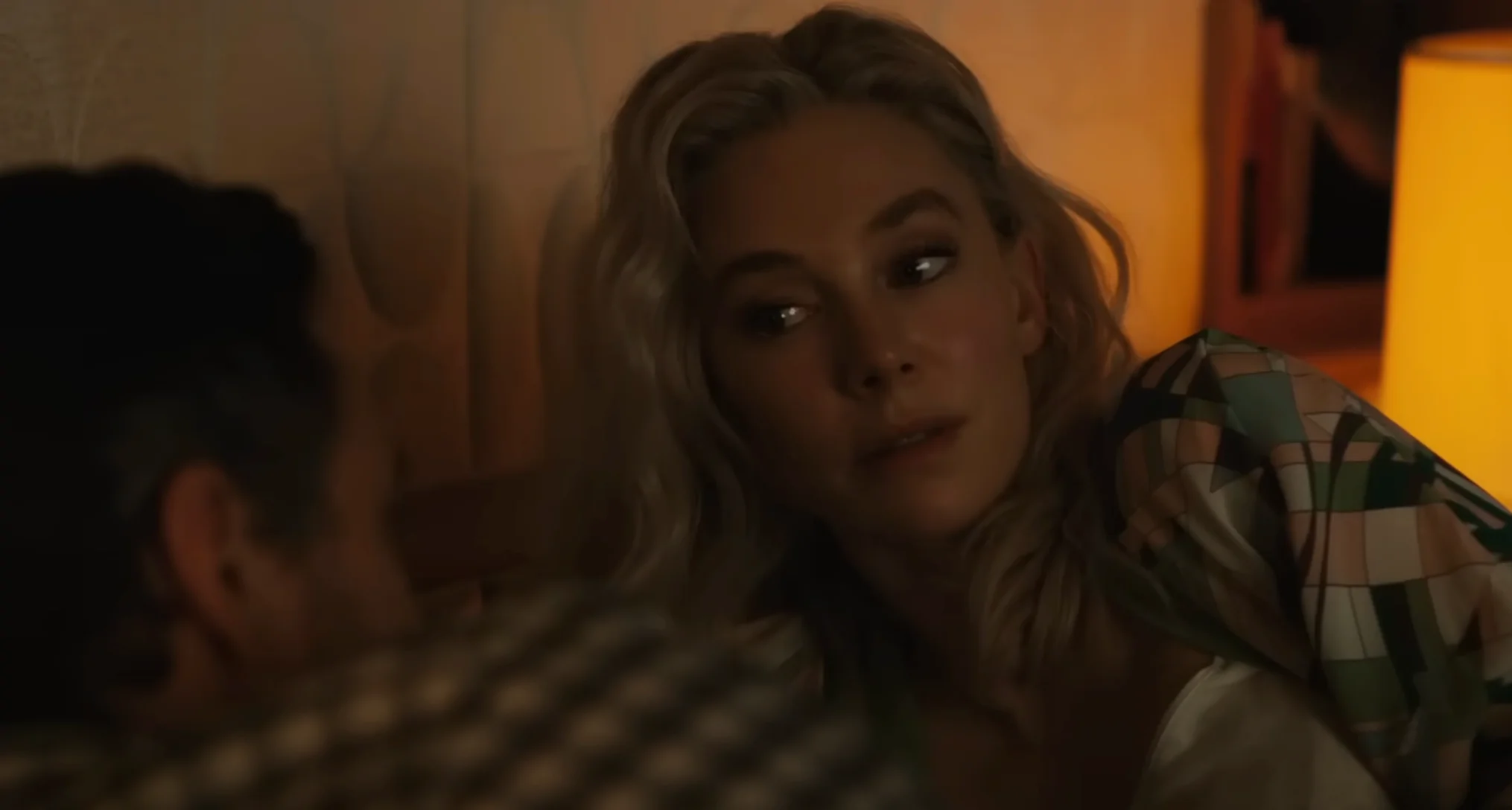
However, here, Reed seems preoccupied with melancholy, uttering pseudo-scientific talk, and appearing bewildered amidst Pedro Pascal’s perpetual beard.
Let’s move Bikini Bottom to another place!” This gives you an idea of the simplicity of my grand scheme.
I wish I was joking.
Pedro Pascal Fatigue is Real
Let’s discuss Pedro Pascal today. However, it seems like he’s everywhere – in virtually all significant franchises out there, which leaves me feeling a bit oversaturated with his appearances.
He’s lending his voice to characters in “Star Wars” and “The Last of Us.” He’s making appearances in high-end TV series, blockbuster movies, and it seems like he can’t avoid it – now he’s known as Mr. Fantastic.
Initially, choosing Pedro Pascal seemed daring, but those days are gone. Now, we’re fully immersed in the overabundance of his roles.
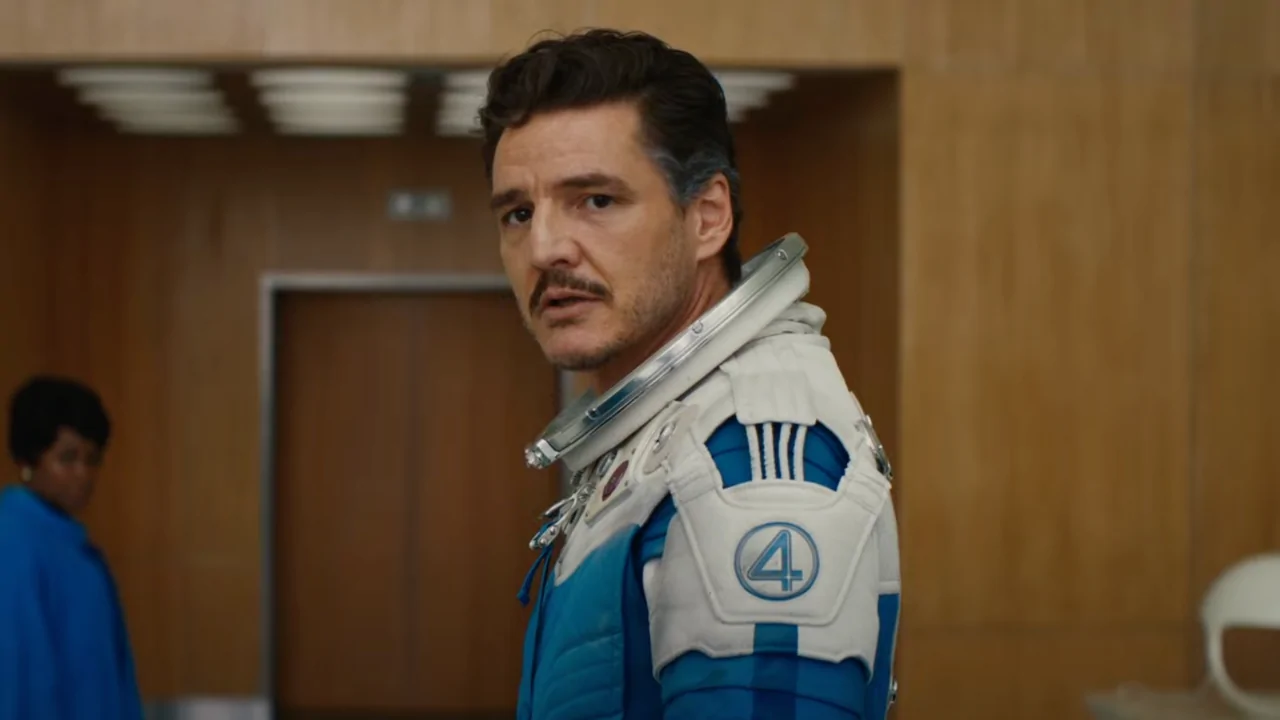
Pascal’s depiction of Reed Richards lacks passion and originality. His portrayal seems disinterested, and the character, who is supposed to be the most intelligent person in the Marvel Universe, appears dull. Instead, he often looks gloomy, stares vacantly into space, and delivers dialogue that sounds like it was generated by an AI model after flunking a high school chemistry test.
In simpler terms, his dialogues come off more like a high school student attempting deep thoughts during a late-night dorm room philosophizing session rather than the sharp wit of a tech visionary.
One aspect of the challenge lies in his reluctance to wholeheartedly embrace the character. It’s said that he was hesitant to discard his distinctive beard, as he dislikes his appearance without it. Although this may seem minor, it holds significance.
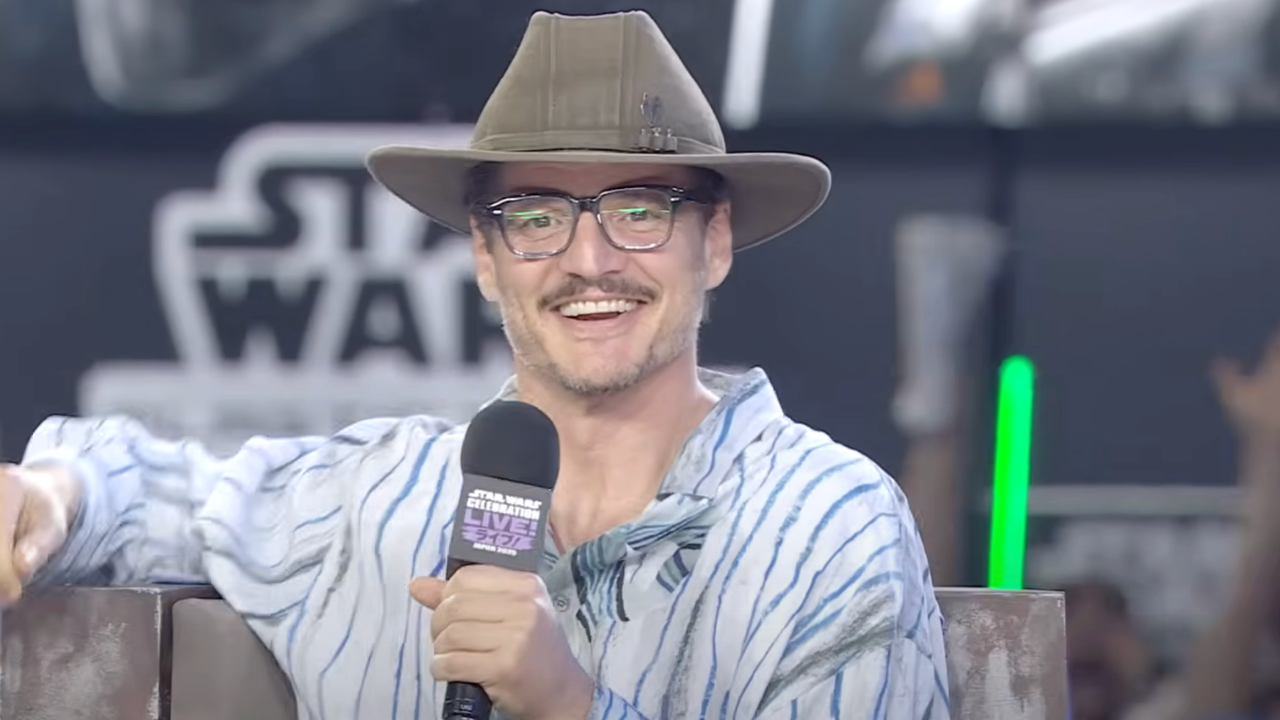
Reed Richards, the character, possesses a distinctively neat and gray-haired appearance. Occasionally, he sports facial hair, but typically it’s a full beard. Pedro’s trademark facial hair is so distinct that he seems to embody Reed more than the other way around. This actor doesn’t change himself for the part; instead, he believes the role should adapt to fit him.
And the worst part? Marvel let him.
What sets this exhaustion apart is not only the ubiquity of Pedro, but also the fact that there seems to be a lack of accountability regarding his performance. He’s essentially turned into Hollywood’s go-to soother.
“Just throw Pedro in it, people like him.” But that charm only works when he’s cast correctly.

Reed Richards isn’t your typical brooding dad figure or cool guy. He’s not rugged either. Instead, he’s a nerdy character, smart beyond belief with an intense focus that borders on arrogance. Pedro portrays him as a weary single father who stumbles into the Baxter Building and suddenly starts delivering insightful lectures like a seasoned TED speaker.
This isn’t casting against type—it’s casting with complete disregard for character.
It’s clear that some people still admire Pedro Pascal, which is perfectly fine. However, when the crowd audibly sighs or groans whenever his face appears on screen, and it seems like his presence in movies feels more like a marketing ploy than an artistic choice, production companies should take note. Surprisingly, Disney and Marvel are not heeding this warning, but rather pushing him into numerous projects as if he’s some sort of cinematic all-purpose sealant for their productions.

Pedro’s exhaustion is indeed genuine. The query remains: will the film industry recognize it before viewers decide to cease attending?
Marvel clearly thinks the answer is no.
I think they’re wrong.
Final Verdict
Initial Impressions of “The Fantastic Four: First Steps”
I had high hopes for this film and was expecting a favorable critique. Visually, it’s quite appealing. Some performances were convincing. For the initial 90 minutes, I found myself thinking, “Perhaps this could be a promising start.” However, as the story unfolded, it veered into full-blown Marvel Comics Universe (M-SHE-U) style, which resulted in the diminishing of one of Marvel’s most iconic villains and the transformation of classic characters into symbols of empowerment.

This isn’t the Fantastic Four. It’s the Femtastic Bore.
Final Score: 4.5/10
“I’ve had the pleasure of watching WDWPRO’s review of the Fantastic Four. Contrary to some expectations, it’s not the top Marvel movie of the year.”
Read More
- Clash Royale Best Boss Bandit Champion decks
- Vampire’s Fall 2 redeem codes and how to use them (June 2025)
- Mobile Legends January 2026 Leaks: Upcoming new skins, heroes, events and more
- World Eternal Online promo codes and how to use them (September 2025)
- How to find the Roaming Oak Tree in Heartopia
- Clash Royale Season 79 “Fire and Ice” January 2026 Update and Balance Changes
- Best Arena 9 Decks in Clast Royale
- Clash Royale Furnace Evolution best decks guide
- Best Hero Card Decks in Clash Royale
- FC Mobile 26: EA opens voting for its official Team of the Year (TOTY)
2025-07-25 18:59